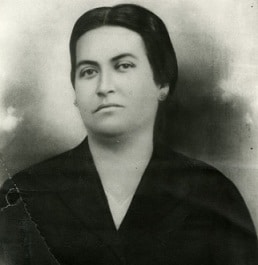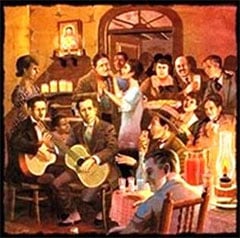 The notion of criollismo refers to the creole characteristic . The term is also used to refer to the position that leads to the exaltation of the properties of the Creole .
The notion of criollismo refers to the creole characteristic . The term is also used to refer to the position that leads to the exaltation of the properties of the Creole .
Before moving forward, it is important to know what the idea of creole refers to. A Creole individual is one who was born in a former European colony in America and who descends from Europeans. Sometimes, the Creole is specifically a black subject born in an American territory that belonged to Spain .
In the broadest sense, a Creole is someone who was born in a Hispanic American nation, as opposed to an immigrant from Europe or another continent. By extension, Creole is something typical of these countries .
Returning to the concept of criollismo, it usually refers to a literary movement that emerged at the end of the 19th century and was consolidated at the beginning of the 20th century, focusing on Creole customs. Although it has different features depending on the region, in general its works coincide in highlighting the fight against oppression.
Criollismo usually realistically describes the living conditions of blacks , gauchos and aborigines . It is important to keep in mind that, originally, the independence of the former colonies was still recent.
In Cuba , for example, criollismo focused on Cuban identity, with Alejo Carpentier as one of its references. On the other hand, authors of Creoleism in Chile , such as Gabriela Mistral , detailed the daily difficulties of those who lived in rural communities.
Popular legends, the use of idioms , the preponderance of the native and the sociological pretension are some of the distinctive qualities of Creoleism.
This term, autochthonous , is key when talking about Creoleism. Since the second half of the 16th century, the word criollo has been used to refer to the children of Spaniards born on the American continent, in a land that would have been dominated by Spain and converted into a colony . It goes without saying that throughout his life, a Creole did not feel a single well-defined identity, but rather had to combine his two origins, his two languages, the cultural differences of his parents and the violence that had originally united them.
 The Creole did not speak the same as the Spanish born and raised in Europe, nor were their respective cultural backgrounds the same. In the 18th century, the differences between the two became even more accentuated after the Bourbon reforms, which did not allow the Creole to access the most important positions in the Church and the Government.
The Creole did not speak the same as the Spanish born and raised in Europe, nor were their respective cultural backgrounds the same. In the 18th century, the differences between the two became even more accentuated after the Bourbon reforms, which did not allow the Creole to access the most important positions in the Church and the Government.
This gave rise to the emergence of a new identity that could take refuge in their own roots, where they would not have to suffer contempt and discrimination from those who had usurped the lands of their ancestors. Searching for the native, Creoleism gradually consolidated.
Another of the most important concepts in the context of Creoleism is enlightenment, a cultural movement that emerged in Europe in the 17th century and extended until the 19th, characterized by the predominance of reason over faith and the commitment to progress. . It is also related to liberalism, for which it served as a basis, since it defends individual freedoms.
The development of cities in Latin America was enhanced by the waves of immigration that arrived between the end of the 19th century and the beginning of the 20th century, and that is why it represented modernity but also foreignness. At the other extreme, rural life is understood as a symbol of the national people, of what is their own, of what had always been there, and that is why Creoleism appreciates it so much. In his literature, both the characters and the customs of the countryside are exalted, precisely because they have not been "modernized."
